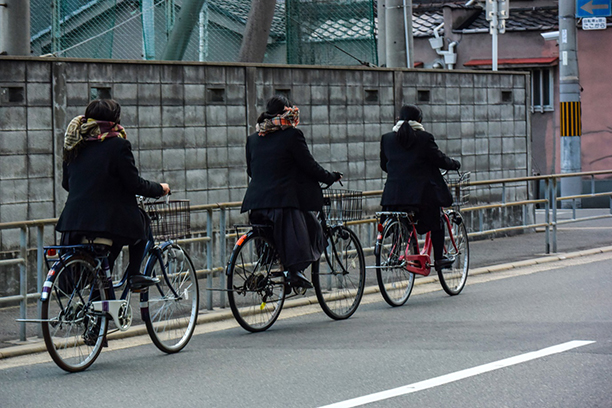What is it Like to Commute to School in Japan?

Since we went through the common phrases and words used when it comes to transportation in Japan, why not talk about public commutation then? Well, transportation in Japan is really well-known for being one of the most efficient in the world. It is true that it has a well-connected transportation network throughout Japan. Japan’s transportation system consists of many various kinds such as buses, trains, subways, metros, shinkansen and many more. This makes it really convenient for public commuters who rely on these public transportations to get to school or work daily.
Whether you are travelling near or far, the vast network of Japanese public transportation provides you a fast, precise, and efficient way of reaching your destination. However, since most of the readers of this blog here are international students who are currently staying in Japan to study and even potential international or study-abroad students who are interested in studying in Japan in the near future, the most important thing to know regarding transportation have to be whether there is a way to actually save money by riding on public transport daily.
Well, actually there is more than one way to save a lot of money. Three of the best ways to commute to school are by using the commuter pass, bicycle and on foot.
Commute to School By Commuter Pass

Since you are most probably a student staying in Japan, you are most likely to be commuting to school for more than 15 days a month. In this case, it is probably cheaper to buy a commuters pass, or 定期券(ていきけん) (abbreviated to 定期(ていき)). These passes are available in 1 month, 3 month or 6 month versions and basically allow for unlimited travel between two designated stations on the specified lines. Those for students (通学定期(つうがくていき)) require a certificate from the school and/or a school ID. To purchase a pass, go to the ticket office at a major station, or use the ticket machine.
There are also prepaid fare IC cards such as PASMO, Suica and Icoca. But do take note that unlike in other countries like South Korea, these prepaid fare IC cards do not offer any kind of fare discount benefits. Yes, these cards offer you a really convenient way to travel around Japan because they can be used on trains, buses and subways. You simply need to tap the card over a card reader at the ticket gates at the station or at the front of buses. You can do this in a “touch and go” fashion. So these cards do make your life easier but it does not make you save money at all.
Commute to School by Bicycle

Like many Asian countries, Japan is a land of bicycles. Everywhere you go in Japan, they can be seen clustered outside supermarkets and pachinko parlours, and being able to dodge mamachari clunkers as they weave along the sidewalk is a key urban survival skill here.
Getting a bicycle can be as cheap as a 1000 yen. Of course, these bicycles are second hand and are most likely to be mamachari bicycles, which are usually those without gears. So yes, getting a bicycle and riding it to and from school every single day will definitely save you a lot of cash! However, it may tire you out if you live quite a distance away from school. Some places in Japan are not that flat and may have a lot of slopes, so it will most likely drain most of your energy once you arrive in school.
Commute to School on Foot
Walking to school has got to be the best option here. Firstly, it is free and secondly, it is very healthy for you. Locals here tend to walk quite a distance daily and therefore, it is pretty normal to hear students who walk to school every day, despite the fairly long distance from home. But of course, if you live about an hour or more from home by foot, I would suggest you to go by bicycle or just get a commuter pass instead. Like the bicycle, walking long distances every single day will tire you out really quickly, especially in the summer.










